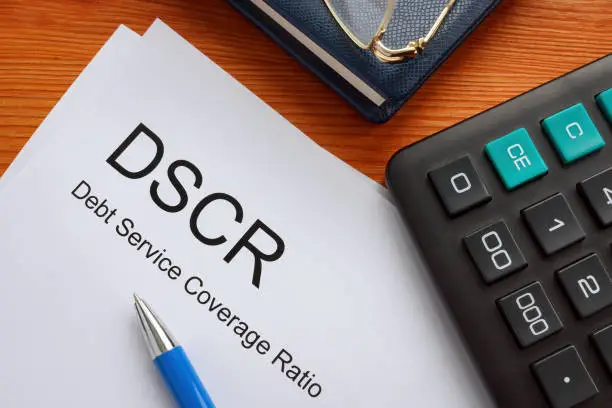When you're looking for a Debt Service Coverage Ratio (DSCR) loan, your choice of entity structure is a big part of the process. It's not just about what you buy; it's also about how you own it. Whether you apply as an individual or through a business entity can change everything from your personal liability to your loan eligibility.
This guide will explain why choosing the right entity structure is so important for DSCR loans and which options real estate investors most often consider.
The Role of an Entity in Real Estate Investing
The entity you use to apply for a loan tells a lender a lot about your approach to investing. A structured business entity, like an LLC, separates your investment activities from your personal finances. This separation is crucial for a lender because it shows that the property is being managed as a professional business, which can reduce their risk.
For you, the investor, the right entity structure provides a layer of legal protection. It keeps your personal assets, such as your home and savings, separate from your investment property's debt. In the event of a problem with the property, this distinction can protect you from personal financial ruin.
Choosing the Right Entity for Your DSCR Loan
Limited Liability Company (LLC)
The LLC is a top choice for real estate investors. It offers the legal protection of a corporation with the tax simplicity of a partnership.
- Benefits: The main benefit is liability protection. If a tenant gets hurt or a loan goes bad, your personal assets are typically shielded. Lenders see an LLC as a sign of a professional operation, which can lead to better loan terms.
- DSCR Loan compatibility: Lenders prefer LLCs for DSCR loans because the loan is made to the business, which owns the asset. This aligns the loan with the property's performance, not the borrower's personal income.
Sole Proprietorship (Individual)
Applying for a DSCR loan as an individual is simple to start, but it comes with significant risks.
- Risks: Without a business entity, you are personally liable for all business debt. Your personal assets are on the line for any loan defaults or legal judgments. Some lenders may also be less inclined to provide a DSCR loan to an individual.
- DSCR Loan compatibility: While some lenders may allow it, it's not the best path for building a large real estate portfolio because of the high personal risk.
Other Structures
- Corporations (C-Corps and S-Corps): These structures offer strong liability protection but have more complex tax rules and administrative burdens. They are less common for real estate investors.
- Partnerships: These are for two or more people and are easy to form but offer little liability protection for partners. A partnership can be managed as an LLC to gain that liability shield.
- Land Trusts: A trust is a legal tool to hold title to a property. It offers privacy and can simplify estate planning, but it does not offer the same legal separation as an LLC. Lenders may require the borrower to form a business entity to secure a DSCR loan, even if the property is in a trust.
Lender Expectations and Required Documents
Lenders have specific preferences when it comes to entity structures. They often want to see a formal business in place. This makes their job easier and reduces their risk.
The role of a Personal Guarantee is also a key part of the process. A lender may require a personal guarantee from the LLC owner. This means that if the business cannot pay the debt, the owner promises to pay it from their personal assets. A personal guarantee is often required for new investors, as it gives the lender extra security.
When you apply for a DSCR loan as an LLC, you will need to provide specific documents:
- Operating Agreement
- Articles of Organization
- Employer Identification Number (EIN)
Having these documents ready will make your loan application process go more smoothly. It shows the lender that you are prepared and serious about your investment.
Strategies for Structuring Your Portfolio
Series LLCs and Holding Company Structures
As your portfolio grows, a single LLC for all properties might not be enough. A Series LLC allows you to create separate legal "series" within one main LLC. Each series can hold a different property, isolating the liability of one property from the others.
A Holding Company Structure involves a parent LLC that owns one or more subsidiary LLCs.
Each subsidiary LLC holds a single property, and the parent company is the main operating business. This structure keeps all properties separate while simplifying overall management.
Final Takeaways for Your DSCR Strategy
Choosing your business structure is not just about getting a loan. It's about building a solid foundation for your entire real estate investment business. Your choice affects how you are protected, how you are taxed, and how you secure financing.
A strong DSCR is the key metric that lenders use to approve your loan. It's a simple ratio of your property's Net Operating Income to its annual debt payments. No matter your entity structure, you will need to present a positive DSCR to get financing. To get a full understanding of the numbers, refer to our article on how to calculate DSCR.
A thoughtful strategy helps you align all these parts. For example, a good structure can not only help you get a great DSCR loan but also set you up to unlock business credit for future projects. By considering all of these factors at the start, you can build a more secure and profitable portfolio.
If you are a real estate investor or a property owner looking for financing solutions, we can help. Our services can guide you through the process of securing DSCR loans and other real estate financing. If you're ready to take the next step, schedule a meeting to discuss your specific needs, or contact us directly to get started today.
















